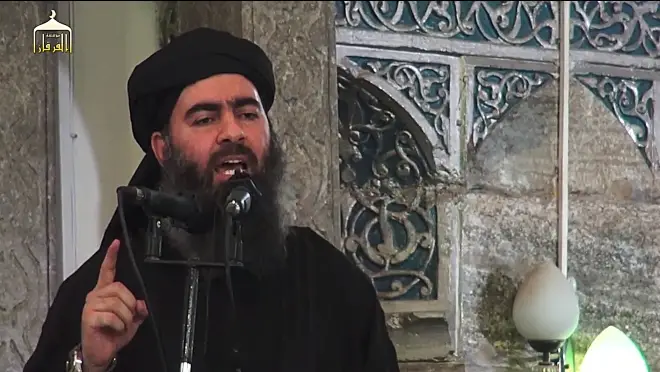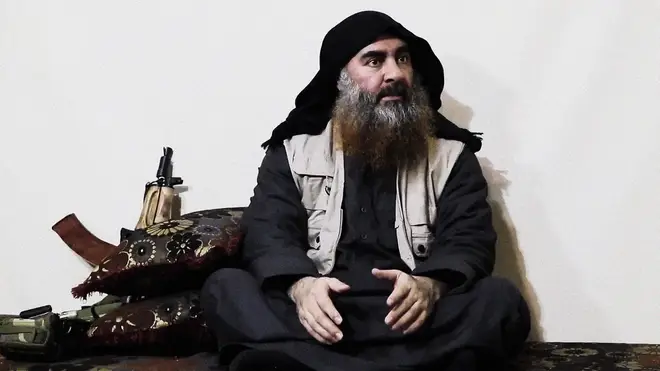
Oli Dugmore 4am - 7am
16 September 2019, 17:50

A senior British Army officer has said Islamic State's leader Abu Bakr Al-Baghdadi is becoming "less important by the day" but remains a "credible threat."
One of the UK's top commanders in the US-led fight against ISIS has said the runaway leader, with a £19m bounty on his head, is not seen "as somebody of great importance" despite his iconic status.
Baghdadi was one of the figureheads of ISIS after declaring the caliphate in 2014, which spread rapidly across large parts of Syria, including Raqqa, before blitzing through Iraqi towns and cities like Mosul.
But since its decline Baghdadi has been evading capture and is no longer seen as such an important individual.
Major General Chris Ghika of the British Army did, however, confirm that if the leader's location was known then something would be done about it.
He said: "I think he gets less important by the day. I am pretty confident Baghdadi will be killed or caught during this campaign."
There have been international efforts to capture extremists and reduce the self-proclaimed caliphate from its peak when it covered an area the size of Britain.

During these efforts Baghdadi "left his people to die," according to Maj Gan Ghika but the leader still remains "under very close observation" by the international community.
He said: "They [extremists] are still a danger to the security of Iraq and north-east Syria and that's why they must be taken seriously.
"That's why at every opportunity we say to people that this group, despite the end of their physical caliphate, are still a credible threat to security."
The officer reassured people that a global coalition had been successful in killing or capturing "large numbers" of the ISIS leadership, however roughly 10,000 of its fighters still remain with access to a dwindling supply of money and weaponry.
Some ISIS training sites remain in the desert and in cave complexes which have been the target of airstrikes in recent months.
Speaking of how the group has evolved, Maj Gen Ghika said: "They have transitioned from being a force which holds ground into an insurgent-like force which is now present in Iraq and also Syria."
There is currently a "refocused effort" by the Iraqi Security Forces to get to the places where ISIS is trying to regain.
Asked what shape he thinks the group will take looking forward, he said he hopes "as they are militarily, incrementally defeated," that their attraction to aspirants, supporters and financiers will "go through the floor."
Offshoots aligned to the terrorists have sprung up around the world since 2014 in places including North Africa, West Africa, Afghanistan, south east Asia, Sinai and the Far East.
Maj Gen Ghika said the global coalition, of more than 80 partners, has discussed the issue of shifting focus to tackle ISIS in other areas.
He added of the group's affiliates: "We are watching them all, but the solution to the fight in those places has got to be different to what's happening in northern Syria and Iraq because the dynamics, the nations are completely different."